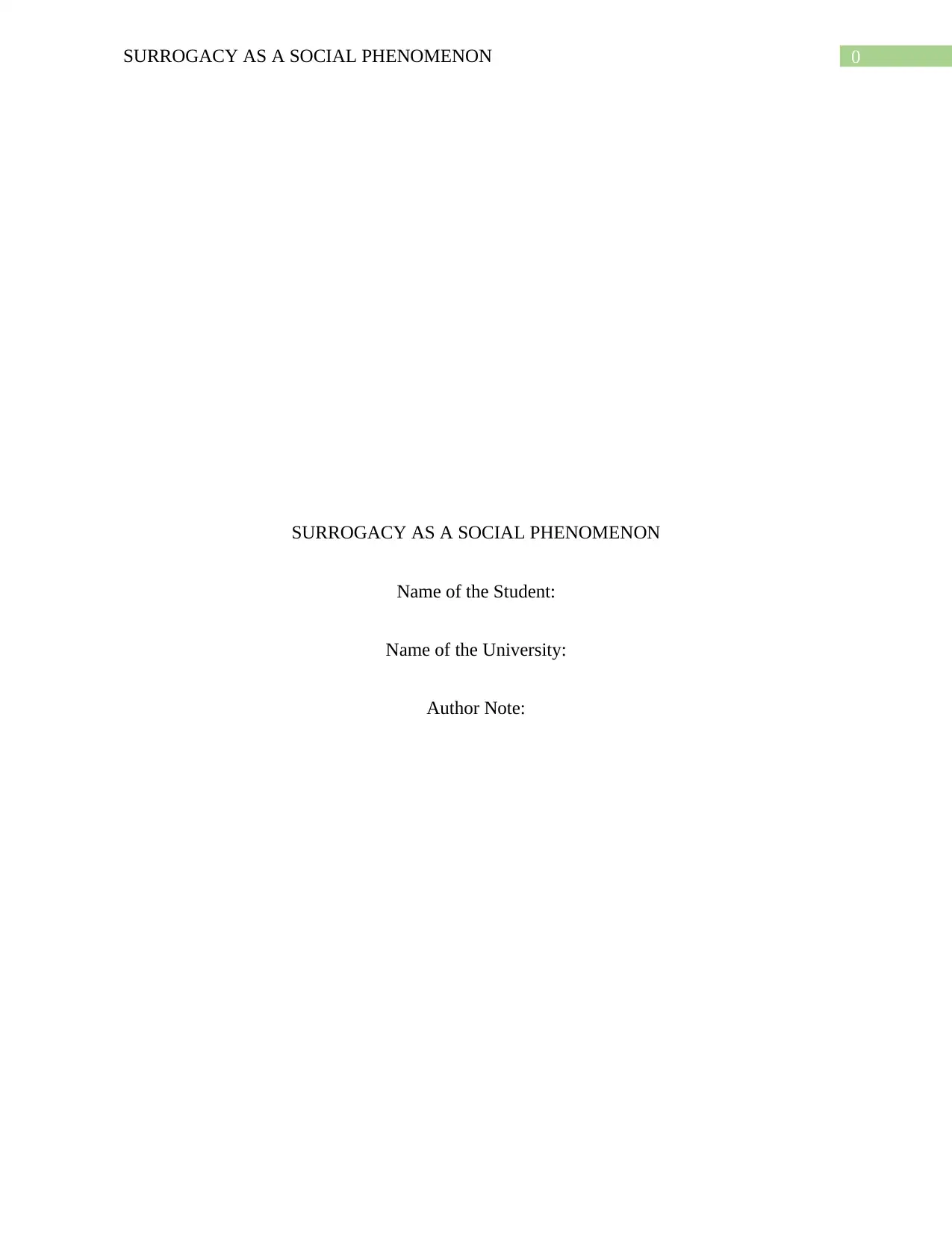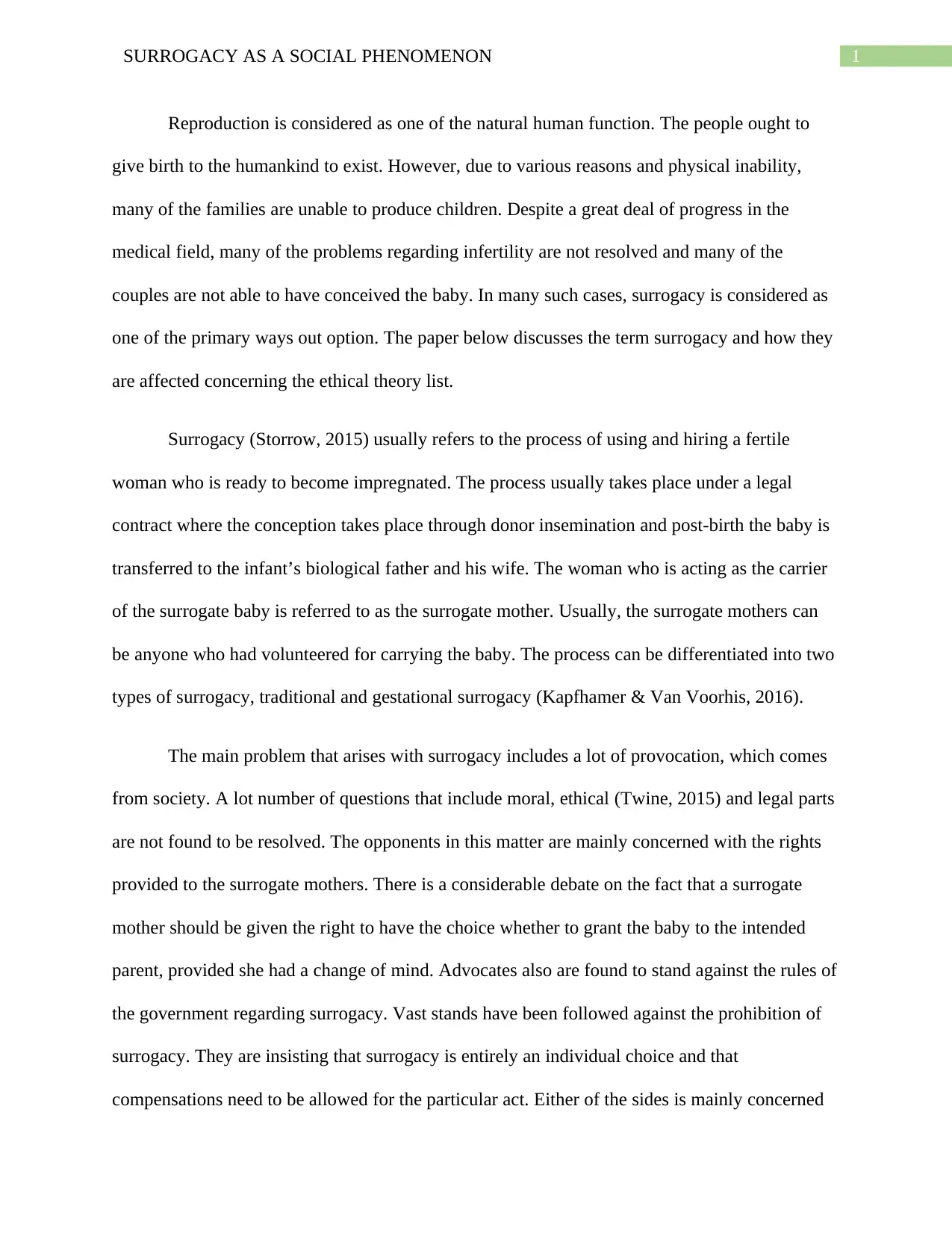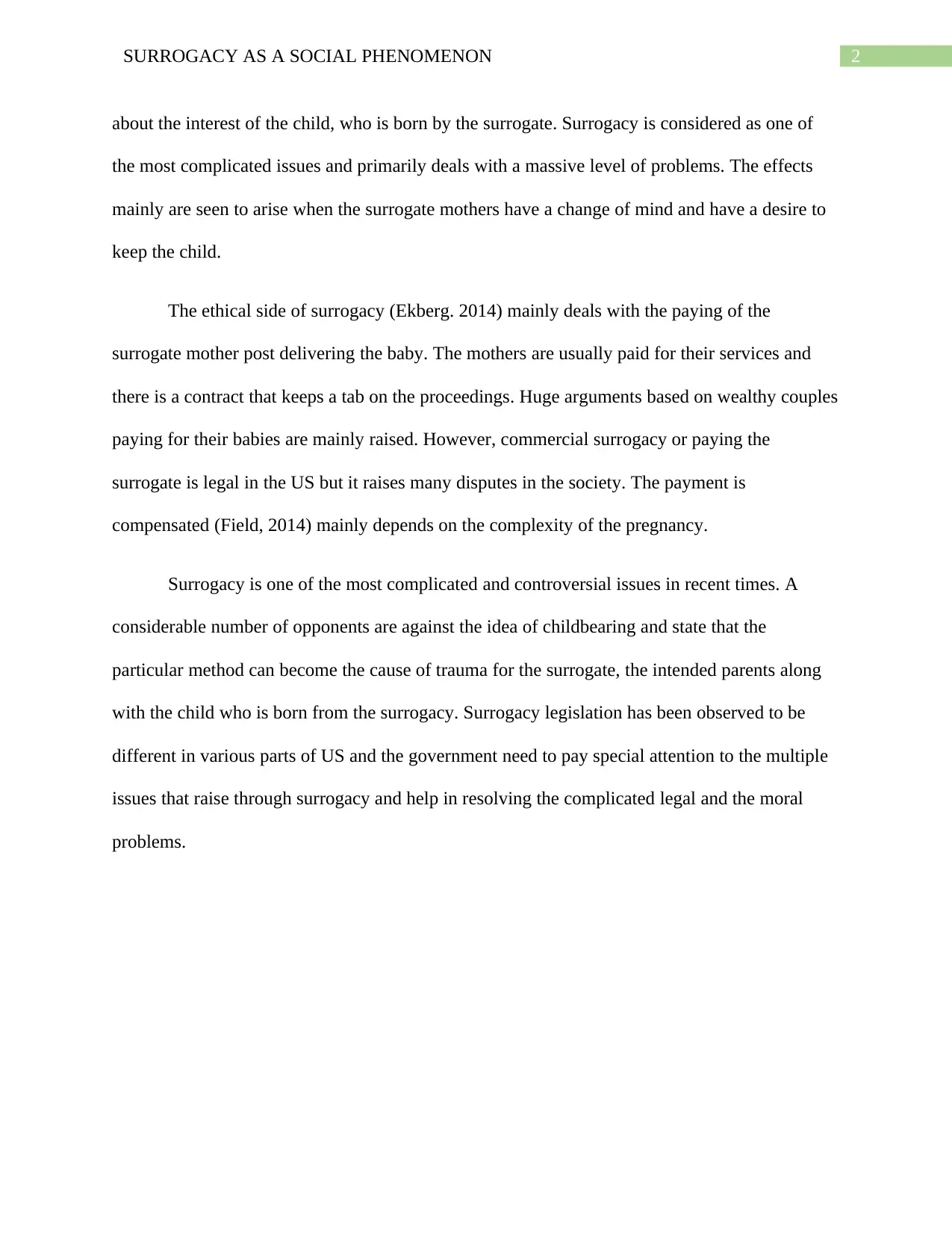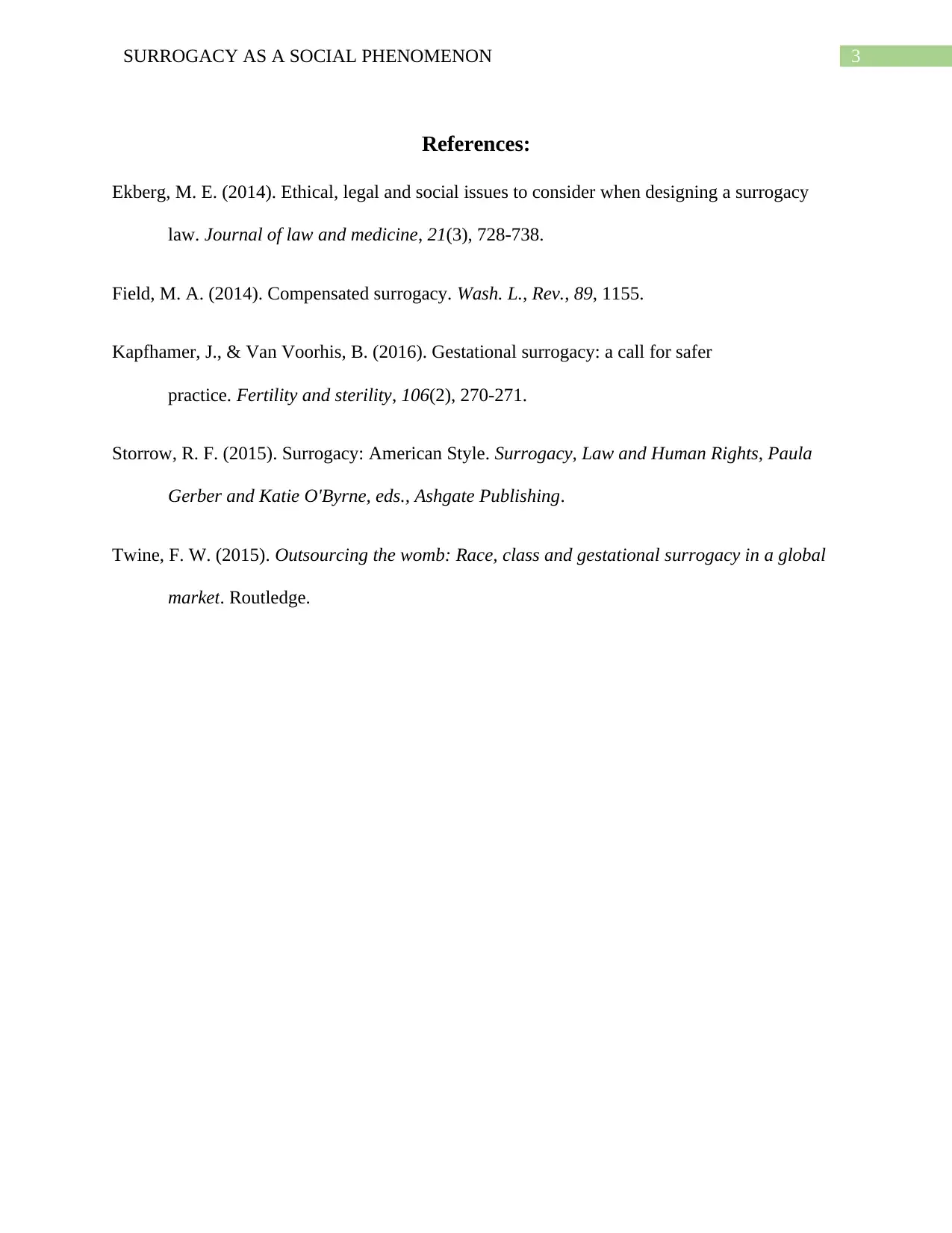Surrogacy as a Social Phenomenon: Ethical, Legal, and Moral Analysis
VerifiedAdded on 2022/08/10
|4
|817
|174
Essay
AI Summary
This essay examines surrogacy as a multifaceted social phenomenon, deeply intertwined with ethical, legal, and moral considerations. It begins by defining surrogacy, differentiating between traditional and gestational methods, and highlighting the societal provocations it elicits. The core of the discussion revolves around the ethical dilemmas, particularly concerning the rights of surrogate mothers, including the contentious debate over their right to choose whether to relinquish the child. The essay also addresses the economic aspects, such as commercial surrogacy, and its implications, especially the concerns about wealthy couples paying for babies. Furthermore, it underscores the varying legal landscapes surrounding surrogacy in different regions and emphasizes the need for careful governmental attention to resolve the complex moral and legal challenges it presents. This analysis sheds light on the intricate dynamics involved in surrogacy, offering insights into the perspectives of surrogate mothers, intended parents, and the children born through this process.
1 out of 4









![[object Object]](/_next/static/media/star-bottom.7253800d.svg)